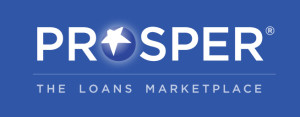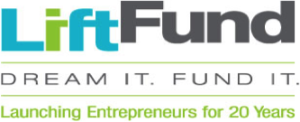Note: This post has a Texas bias and a version of it ran in the San Antonio Express News. However, there is no open-carry here on this blog, so you can bring your children.
I suggested in a recent post that it’s nearly impossible to fund a new business and there’s really no good way to go about it. The best thing you can hope for is just to be born rich.[1]
However, in the interest of keeping the American Dream alive (at least until Trump wins in November) I’ll mention a few non-traditional avenues to investigate if you’re starting a new company and looking for funding.
Each of the following non-bank options are lenders, meaning you’re getting a loan rather than a direct investment in your business.
Prosper.com
 Prosper is not a small business lender per se, but rather an online source of 3-year fixed interest rate personal loans of up to $35,000. You can apply with them online for a variety of needs, including for your small business. You create a profile, describe the size of the loan you need and your planned use of the funds, and what interest rate you’d be willing to pay. The ‘lender’ will be numerous individual investors[2] grouped together by Prosper. They agree to fund you at your proposed interest rate, for as little as $25 per lender, or up to the full amount of your request. Prosper handles all the online mechanics of funding and payback of the loan. Since there’s no traditional bank involved, but rather thousands of individuals making decisions, I see Prosper as a reasonable, small-size, alternative for startups to consider.
Prosper is not a small business lender per se, but rather an online source of 3-year fixed interest rate personal loans of up to $35,000. You can apply with them online for a variety of needs, including for your small business. You create a profile, describe the size of the loan you need and your planned use of the funds, and what interest rate you’d be willing to pay. The ‘lender’ will be numerous individual investors[2] grouped together by Prosper. They agree to fund you at your proposed interest rate, for as little as $25 per lender, or up to the full amount of your request. Prosper handles all the online mechanics of funding and payback of the loan. Since there’s no traditional bank involved, but rather thousands of individuals making decisions, I see Prosper as a reasonable, small-size, alternative for startups to consider.
In my state, Texas, you cannot be a lender on Prosper, but you can be a borrower. In the mid-2000s – back when Prosper first came out and I lived in New York – I funded a bunch of small loans, including small business loans. As an investor, Prosper worked fine for me.
Back in 2007 I also once tried to borrow $10,000 and was ‘funded’ by the collective interwebs at a reasonable 7.7% rate, but could not ultimately get through their due diligence process, which included a credit check (that part was fine) and review of my taxes (for some reason that befuddled them.)
Prosper reports $5 billion worth of loans funded since their inception, so I assume my own problems were idiosyncratic. So check it out.
LiftFund
 Non-profit microlender Liftfund lends money to small businesses in 13 states, although they are headquartered in San Antonio.
Non-profit microlender Liftfund lends money to small businesses in 13 states, although they are headquartered in San Antonio.
[Important disclosure: I do periodic consulting gigs for LiftFund, so anything nice I might say about them should be filtered appropriately.]
They may, in fact, be your startup business’s only hope of getting a loan.
Whereas your traditional bank will not talk with you about a loan until two years have passed – and frankly your bank isn’t in the business of coaching small businesses – LiftFund not only will talk to you but considers supporting startups with educational resources a key part of their role.
When I say banks will neither coach you nor even talk to you about a loan for your startup, I’m not judging banks. Some of this, including the coaching part in particular, is not a money-maker.
I guess LiftFund can do this because of their not-for-profit mission. Like other non-profit business lenders they can do things which don’t maximize their bottom line. Loans range from as small as $500 to as large as $250,000. A bunch of friends of mine in business for less for than two years have gotten loans from LiftFund and their predecessor Accion, so I know this is a legit source.
Able Lending
 File this one under “This is a really cool theory but it’s too new for me to have experience with it yet.”
File this one under “This is a really cool theory but it’s too new for me to have experience with it yet.”
Able Lending relies on a classic microcredit lending theory – that we won’t fail to pay back friends and family – to lend to startups less than two years old.
I recently met up with Mario Cardona – the one-man San Antonio branch office for 2-year-old Austin-based startup Able Lending.
Cardona explained that business owners seeking a loan from Able must first tap their own personal networks (Uncle Bob, your college roommate Janet, and your hair stylist Sam) and get a commitment from at least three different ‘backers’ for your loan. Step two, Able funds up to three times that committed amount, at a rate between 8 and 16%, for between $25,000 and $500,000. So after Bob, Janet and Sam together agree to lend you $25,000, Able funds $75,000. If you do a 3-year business loan, Able gets its portion of the loan paid back faster than your backers do, which is kind of a neat mechanism for ensuring that your backers are taking some risk on you. I think Able Lending depends on the feeling that you really, really, don’t want to let your personal backers down, so they feel more secure with your business loan.
Does it work? I don’t know yet, but would somebody please let me know if they have experience with Able Lending? I like the idea.
NextSeed
 Like Able Lending, Next Seed is a total startup, so it’ll take some time to see how it goes. Also, like Able Lending and LiftFund, it’s based in Texas. Unlike those two, it is only registered right now to do business in Texas. Finally, like Prosper, it’s a crowd-sourced platform for borrowing money.
Like Able Lending, Next Seed is a total startup, so it’ll take some time to see how it goes. Also, like Able Lending and LiftFund, it’s based in Texas. Unlike those two, it is only registered right now to do business in Texas. Finally, like Prosper, it’s a crowd-sourced platform for borrowing money.
NextSeed is taking advantage of newly liberalized national and state laws to allow companies to raise debt and equity from non-accredited (meaning, non-wealthy) investors. Small businesses can sign up with NextSeed to raise between $25K and $1 million at a set interest rate. Investors/lenders – that could be you and me – lend in increments as small as $100 via this platform. NextSeed handles the funding and regular monthly payments.
I spoke with the founders, who believe they offer a more personal, fun mechanism for investing on the one hand, and an alternative source of capital for entrepreneurs on the other. They are currently doing deal number four, so it’s early days yet. I’m thinking about signing up and sending in a small amount of money to be a lender, partly to figure out the mechanisms and partly because Texans right now are shut out of participating in Prosper.
Crowd-funding thoughts
I’ve been reading and learning lately about the liberalization of crowd-funding rules to allow for non-wealthy people to participate. I remain concerned that
- a) This is a not very-efficient way for business owners to access capital and
- b) Some non-wealthy people, at some point, will lose their shirts. There will be tears.
Right now I’m of the mind that liberalizing laws to make more types of investments available for non-accredited investors is probably a net gain for society and the economy – principally that entrepreneurs get more opportunities to access capital. But given the nature of things like this, some people will bear the brunt of the “costs” of this liberalizing – via catastrophic, unexpected, losses. We’ll have generalized, socialized gains and concentrated, private losses. Sort of the exact opposite of the 2008 crisis and bailouts of TBTF banks.
Please see related posts:
Funding for Small Business – All The Terrible Ways
Entrepreneurship – Getting started is the hardest part
[1] If I wrote the bible for small business owners I’d say that it’s easier for a camel to fit through the eye of a needle than it is to convince an affluent person or institution to back your startup company. I feel your pain. To take a more 21st Century analogy, raising money can be heavier lifting than you’ll find at 5:30am Crossfit gym. Traditional banks just don’t want to talk to small businesses until they’ve been in business for two years, with the tax returns and profit to show for it.
[2] Although I kind of assume that by now individual investors have been replaced, somewhat, by Prosper bots. Meaning, institutions or high-net individuals have profit-optimized the algorithm for funding X amount at Y credit rating and Z interest rate on Prosper, so things are pretty automated. An amateur individual lender like me – without an algorithm – is going to end up accepting a non-optimized interest rate for any given risk. Which is still probably fine.
Post read (495) times.
